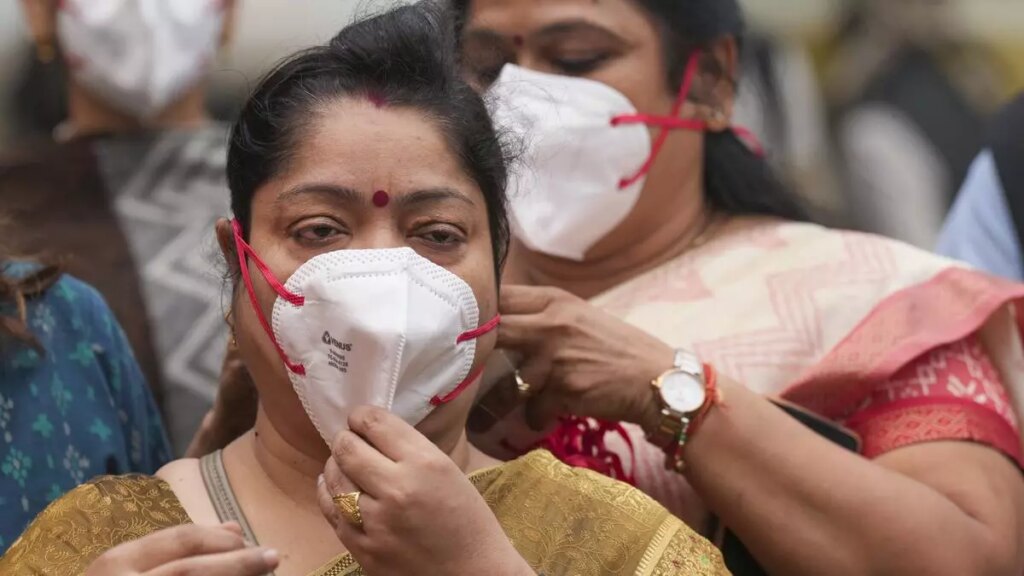Editorial. Capital choked – The Hindu BusinessLine

People in the northern region adjoining Delhi are bracing themselves for another smoky, harrowing winter. The Capital, this week, acquired the dubious distinction of becoming the most polluted city in the world. The Air Quality Index (AQI) in the entire National Capital Region (NCR) has breached the ‘severe plus’ category with hazardous particulate matter (PM2.5 and PM10) at levels several times above the prescribed limits by the World Health Organisation (WHO). The fact that such air toxicity recurs year after year, amidst the usual expressions of outrage and hand-wringing by political actors, points to a paralysis of governance and abdication of responsibility by all actors concerned.
While Delhi remained the epicentre of the air pollution crisis with AQI hovering between 475-500, air quality was poor right across the region till Patna which recorded an AQI of 308 on Tuesday morning, Lucknow at 257, Jaipur at 211 and even a better-planned and cleaner city like Chandigarh had an AQI of 237. The current levels of PM2.5 and PM10 in the air will surely have a disastrous impact on human respiratory and cardiovascular systems with increased incidence of asthma and chronic obstructive pulmonary disease (COPD), as well as heart attacks, strokes, heart arrhythmias and lung cancer. This makes Delhi increasingly unviable for industries and services; the workforce that has started viewing it as a ‘punishment posting’. Industry is factoring in losses it incurs annually, owing to the halt in construction and restrictions on movement of goods and services.
The State governments in Delhi, Haryana, Punjab, Uttar Pradesh, Rajasthan and the Union Government which operates out of Delhi have not displayed any sense of urgency to collectively address the various dimensions of this crisis — the burning of stubble, vehicular and industrial pollution. It is worth noting that, according to the Centre for Energy and Clean Air, thermal plants in the National Capital Region are many times more polluting right through the year than stubble burning — even as the latter spikes at this time of the year and accounts for about 25 per cent of the air toxicity these days, while vehicular pollution accounts for 16 per cent.
The Commission for Air Quality Management in NCR and adjoining Areas, a statutory body set up in 2021 to tackle air quality management, seems to have been sleeping at the wheel. The Supreme Court has drawn attention to the inexplicable delays in the Commission’s initiation of the different stages of Graded Response Action Plan (GRAP). The solutions are not hard to seek: suspension of construction, demolition, vehicular movement, enforcing odd-even rule, closure of public, municipal and private offices as well as schools et al. But what is lacking is an effort to rise above petty mudslinging to act in the larger interest. Indeed, road congestion and pollution seem to run up against policy apathy all over the country. More efforts are needed to make our cities liveable and productive.








